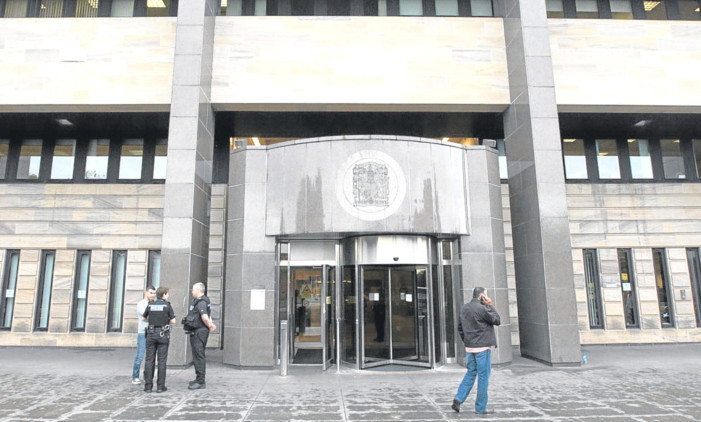
Scotland’s justice system is in the dock for letting soaring numbers of criminals off with a slap on the wrist.
The number of crooks who have avoided appearing in court has soared in the last five years. Nearly half of all cases referred to prosecutors are now dealt with using non-court disposals such as fines, compensation orders and warning letters.
Cops and victims are also disappointed with a rise in the number of cases being dropped. In total, 185,207 suspects have escaped any form of punishment in the last five years for reasons including a lack of evidence or prosecutors who disagreed with the cases built by cops.
Politicians say cases dropped have involved incidents of substantial violence and disorder.
Graeme Pearson, Labour’s justice spokesman, said: “This is a dreadful waste of time by officers who should be on the beat and by procurator fiscals who already have enough to do at courts. In addition each of these reports will count as a detection for Police Scotland when in fact no case was heard or resolved.
“Some crimes dealt with by non-court proceedings have involved substantial violence and or disorder. Many fiscal fines or fixed penalties are ignored and unpaid. This evidence reflects the public’s concerns about soft justice and indeed, in many cases, no justice at all.”
There were 129,199 non-court disposals this year compared to 116,624 in 2008/09. Proportionally, 44% of cases avoided court last year compared to 39% five years ago. During the same period, court disposals dropped from 118,867 to 92,721, representing a fall from 40% to 32% of all reports received.
Prosecutors took no further action in 42,032 cases this year. That figure, while lower than it was in 2008/09, is higher than any other year since.
Scottish Conservative chief whip John Lamont said: “There is a clear indication that the SNP’s intention is to lessen the punishment dished out for a range of crimes. It is sending far fewer people to court, and as a result seems to think that’s a justification for closing so many of them down.
“Punishment for offenders has never been more lenient, and all that will do is send a message that this country is not serious about justice.”
Brian Docherty, chairman of the Scottish Police Federation, said officers find it “disappointing” when prosecutors decide to take no action in cases they’ve worked on.
The Scottish Government said sentencing is a matter for the independent judiciary but added direct measures are used in less serious matters and free up courts to deal with more serious cases.
A Crown Office spokesman said non-court disposals have increased since 2008 as a result of reforms brought in that year.
He said: “The objectives of this reform were to deliver swift, effective justice within our communities while allowing the courts to be freed to concentrate on serious crime and persistent offenders.”

Enjoy the convenience of having The Sunday Post delivered as a digital ePaper straight to your smartphone, tablet or computer.
Subscribe for only £5.49 a month and enjoy all the benefits of the printed paper as a digital replica.
Subscribe